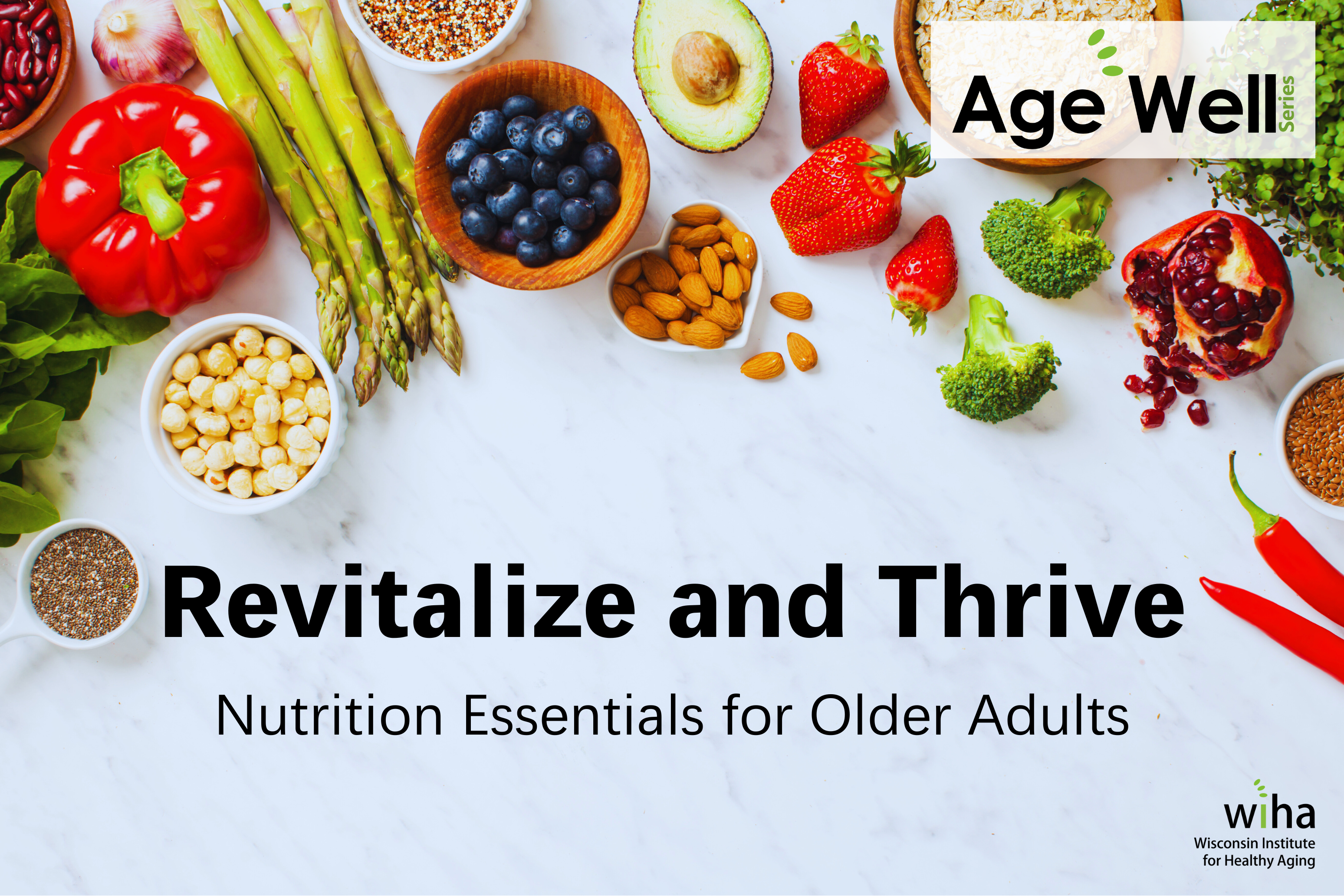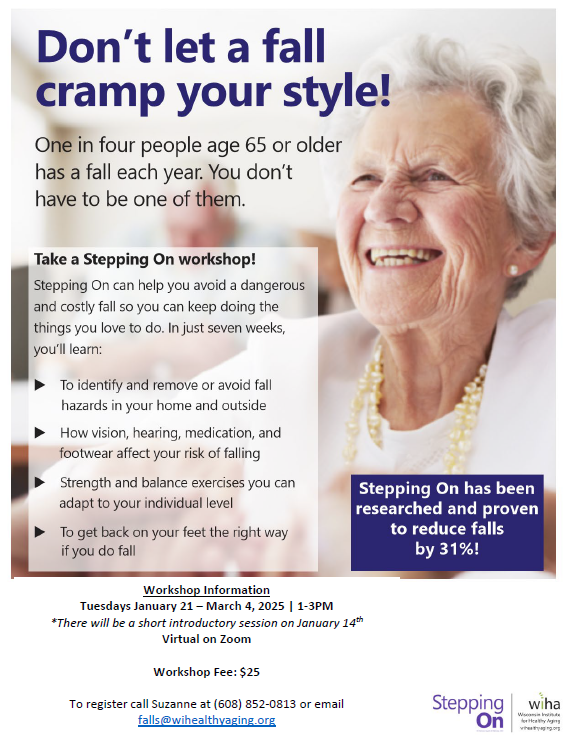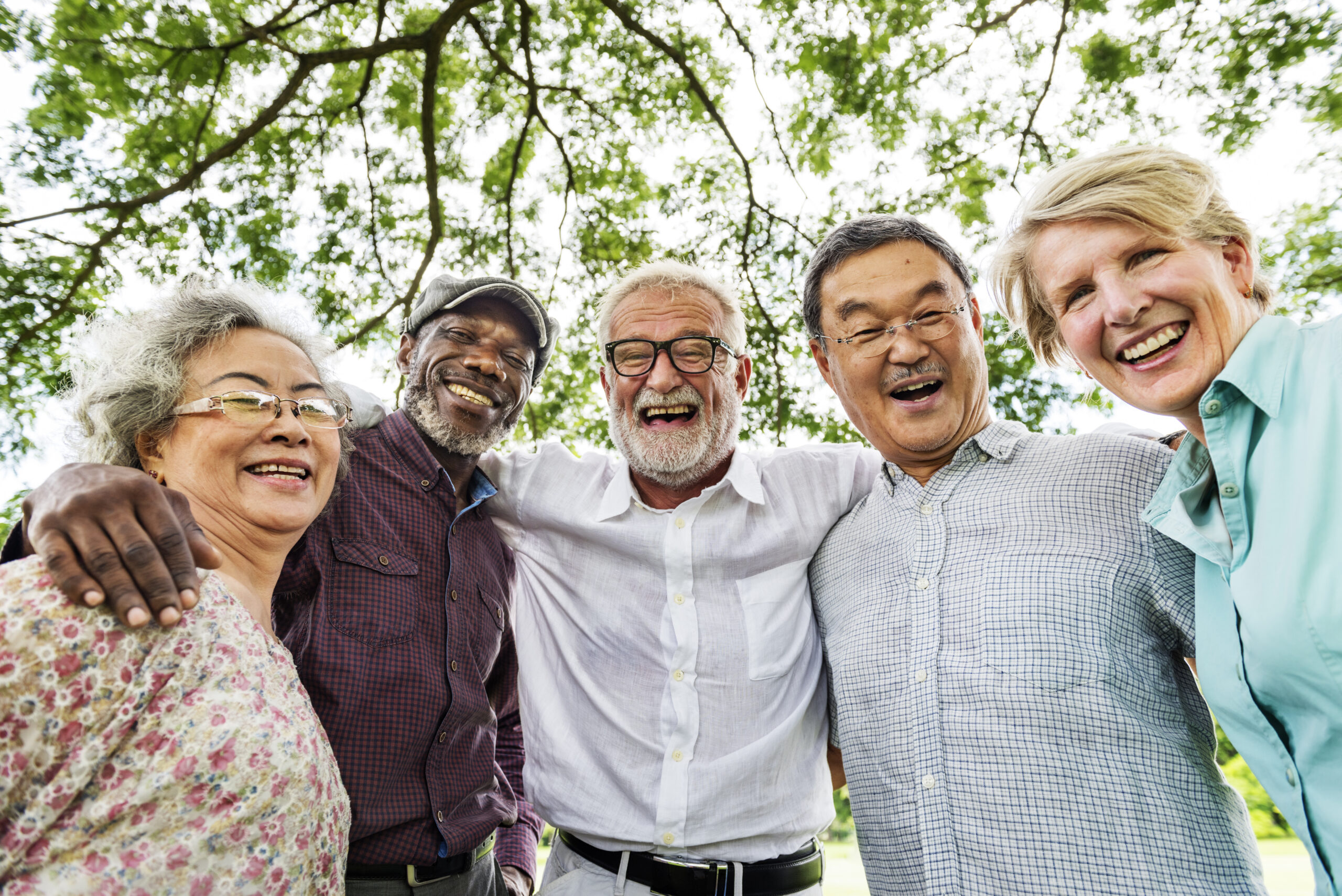
Age Well with WIHA
A newsletter from the Wisconsin Institute for Healthy Aging
Age Well with WIHA: November/December 2024
WIHA’s newsletter is published bi-monthly and sent by email. View the email newsletter online or read the full stories below. Don’t forget to subscribe!
Thriving Through Connection: How Social Bonds Boost Your Health
There are many aspects to our health, one of which is our social wellness. When we experience social relationships that create a sense of belonging, our health improves on multiple levels. The Centers for Disease Control defines social connectedness as the degree to which people have and perceive a desired number, quality, and diversity of relationships that create a sense of belonging, and of being cared for, valued, and supported. High-quality relationships can help people live longer and healthier lives.
When there is a gap between a person’s desired level of social contact and their actual level of social contact, feelings of loneliness can occur, which are often distressing. This can happen regardless of the number of social connections a person has, since we all have varying levels of need when it comes to the number of people we want to have contact with and the type of interactions that create feelings of belonging.
According to the Surgeon General’s Report in 2023, social connection influences our health in three major ways. The first is biology. When we experience too few connections, or not enough quality connections, an increase in stress hormones occurs in the body. When stress hormones build up, inflammation occurs. Inflammation is the root cause of many illnesses and diseases.
Secondly, our level of social connection affects psychology. Having few connections negatively impacts our sense of meaning and purpose, feelings of stress and safety, resilience, and outlook. Interestingly, and as another example of the mind-body connection, positive perceptions of aging have a great deal to do with healthy aging and longevity – to the tune of a 7.5-year longevity bonus for people who think positively about growing older.
Lastly, our behaviors are impacted. A lack of social connections decreases the likelihood of healthy behaviors such as physical activity, good nutrition, good sleep, and accessing health care, and it increases negative health habits like smoking. The cumulative effect is negative health outcomes.
People who lack connections experience serious health impacts, including:
- a 29% increased risk of heart disease
- a 32% increased risk of stroke
- a 50% increased risk of dementia
- a significantly increased risk for depression and anxiety
- increased susceptibility to infectious disease
Research shows that social isolation and loneliness increase the risk of early death as much as smoking up to 15 cigarettes a day – more than obesity!
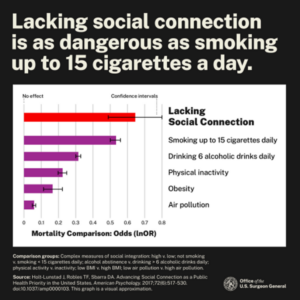
The good news is that social connection can lead to better health and quality of life, as it provides us with emotional and physical support. Our relationships with family, friends, coworkers, and community members are essential components of our health and wellness journey.
Our challenge to you today: who can you reach out to in your community? The solution to social isolation and loneliness can be as simple as each of us connecting with someone around us. Talk to a neighbor, call a friend, or start a conversation with someone at the grocery store or another community space. We can all make a positive impact on those around us as well as on our own health.
Rethinking Aging: Myths vs Realities
Some people believe that normal aging means losing physical strength and beauty, losing memory, falling, having issues with incontinence, becoming lonely, and/or losing independence. This perception of aging not only harms us as individuals, but can also affect how older people are treated at work, in healthcare, and in everyday life, giving them fewer chances and support. These negative ideas, called ageism, can make people afraid of getting older, spreading unfair stereotypes. So, let’s talk about some of these misconceptions! After all, those that have a positive perception of aging have been shown to live 7.5 years longer than those with a negative perception!
Here are some facts to clear up some of the most common myths about aging:
- Myth: Aging always leads to bad health
Over the last 80 years, our society has changed dramatically. The labor force has changed such that jobs requiring social or analytic skills are more in demand than those requiring physical or manual skills.1 This change in the workforce has led to more desk jobs and less physical activity throughout the workday (and we know physical activity is important to prevent chronic conditions2). In addition, food has changed dramatically. Since the 1970s, portion sizes have increased dramatically.3 With people generally being less active and eating more, are higher rates of chronic disease today because of aging? Or are they due to the changes we’ve seen over time?
Fact: Staying active and eating well can help us all to stay healthy and prevent chronic diseases. Learn more about healthy aging programs available near you on the WIHA Website.
- Myth: Memory fades with age
At 35 years old, when you walk into a room to grab something and then forget what you were going to grab it’s attributed to everything else you have going on at the moment. At 70, it’s “old age”. Some memory slips are normal at any age – especially during times of higher stress and competing priorities. At the same time, some memory changes are attributed to changes in the brain over time; or age-related memory changes. These changes may include taking longer to learn something new, taking longer to recall something from memory long ago, or not remembering things as well as you once did. However, it is not normal when memory problems make it hard to do things such as drive, use the phone, or find your way home.4
Fact: Some memory changes are normal, but serious memory loss isn’t a normal part of aging. Talk to your doctor if you are experiencing changes in your memory. Check out our Age Well Series recording: Let’s Be Optimistic About Brain Health for more information.
- Myth: People get weak and brittle as they age
When we were young, we were likely running around on a playground, doing monkey bars, helping with household or farm chores, playing sports, and overall, being active kids. As we age, different priorities come along – long work days, taking care of kids or grandkids, and different hobbies we enjoy more such as quilting or book club. Physical activity is what keeps us strong. So when we stop being as active, there can be some negative side effects.
Fact: Regular physical activity helps us stay strong and healthy. It is never too late to start and increasing your physical activity at any age can help prevent or reduce your risk for different chronic conditions, falls, improve your mood, and more. Find a physical activity program near you on the WIHA Website.
- Myth: Falling is a normal part of aging
There are many causes of falls. Loss of balance and strength is a big contributor (see above myth!), along with unsafe footwear, medication interactions or side effects, problems with eyesight or hearing, and different things in your surroundings (such as throw rugs, pets, or loose cords).
Fact: Although falls are somewhat common among older adults (one in four older adults experience a fall every year), they are not a normal part of aging! There are many things you can do to reduce your risk and take steps to prevent falls! Learn more at Falls Free Wisconsin or by taking a Stepping On class.
- Myth: Bladder leakage is a normal part of aging
Many women complain about bladder leakage, particularly after giving birth. It’s a common complaint among women who have kids and can be embarrassing to talk about.
Fact: Although incontinence (both bladder and bowel) is common, it’s not a normal part of aging! There are different things you can do to strengthen your pelvic floor and alter your hydration and fiber intake to improve or prevent incontinence. Learn more from our Mind Over Matter: Healthy Bowels, Healthy Bladder class!
- Myth: Aging is lonely
Loneliness is impacted by the connections we have around us. Those that stay socially engaged – whether that’s through volunteering, faith-based communities, family members, friend gatherings, or seeing other residents in a senior living facility – are less likely to experience loneliness.
Fact: Older adults can maintain strong social ties. Staying engaged is what is important! Find an activity or group of people to connect with!
- Myth: Aging means losing our independence
When we think of the word “independence”, we usually think of being able to do what we want, for as long as we want. Whether that’s traveling, taking care of our grandkids, writing a book, knitting a blanket, building cabinets, or whatever our hobbies might be; having the mental and physical ability to do those activities is what’s important to us.
Fact: Aging itself does not impact our independence – it is often our physical and mental abilities that impact our independence. Those things are most prominently impacted by our physical health (nutrition and exercise). It’s important to stay active and engaged to maintain our independence.
Read more about these and other myths from the National Institute on Aging. Understanding the facts about aging can lead to healthier, more fulfilling lives for us all as we age.
In this Issue
Age Well Series
The Age Well series is a set of presentations designed to bring you information about how to age well! In October, Pam VanKampen talked about nutrition for older adults. View the recording below or visit the Age Well Series page to find out more information about the event.
Upcoming Events
November: Click below for more information:
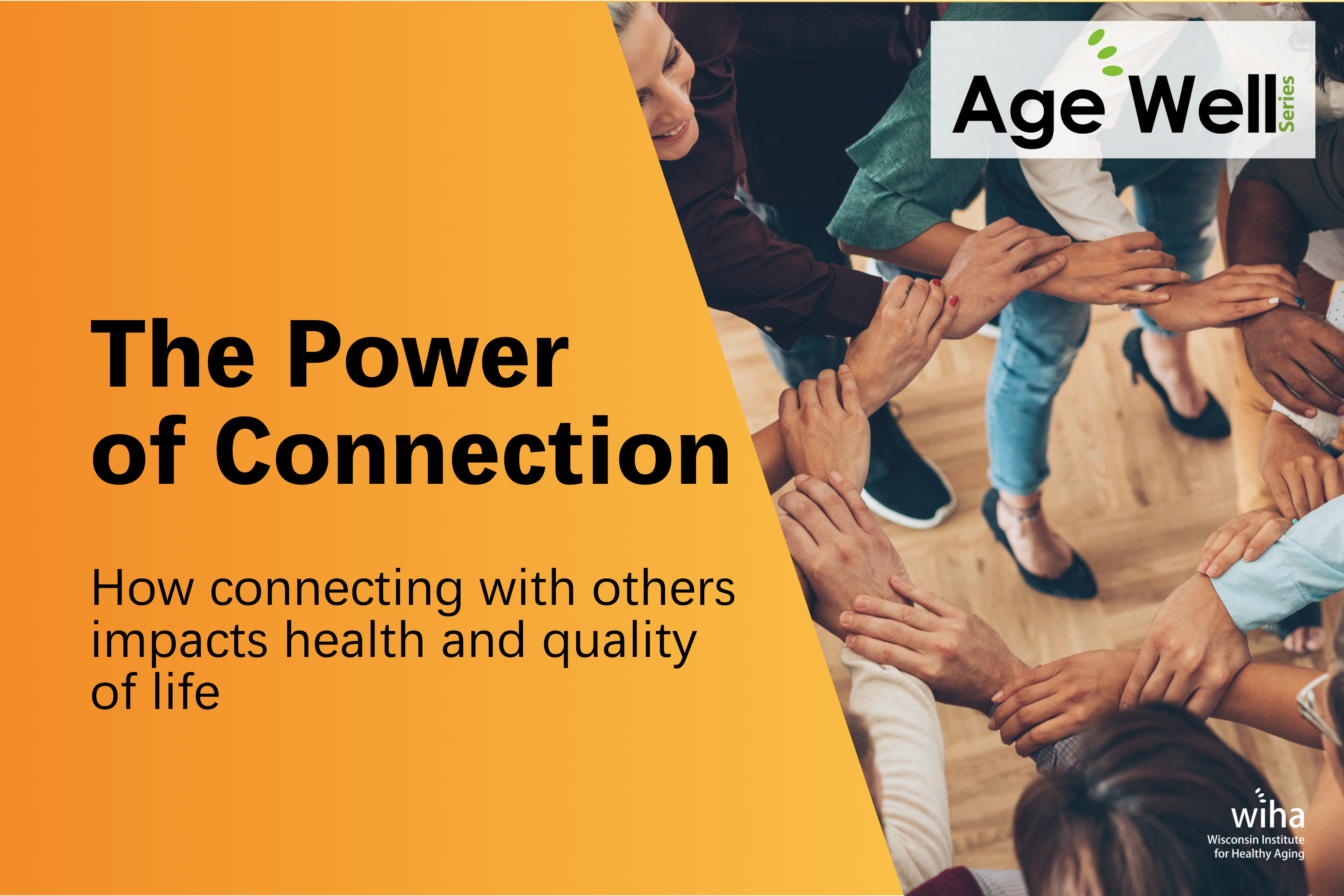
Stay tuned for more information and details.
Incontinence linked to falls
Rushing, in general, can lead to falls. Whether you’re rushing to answer the phone or see who rang the doorbell, rushing home for your favorite television show or rushing to the bathroom every hour, your risk of falling is increased as you may not be paying as close attention as you usually do or scanning ahead for hazards in your way. While you should avoid rushing and take your time as much as you can, that may be harder when you have to go to the bathroom. Problems with your bladder or bowels (incontinence) and not being able to “hold it” for as long as you used to puts you at an increased risk of falling. According to the National Institute on Aging, this can affect anyone, but is more common as we age, especially in women. Incontinence may also cause you to get up more often in the middle of the night, which poses additional risks that may lead to a fall, such as lack of light or drowsiness. If you have problems leaking, you may even be less likely to go out and do the things you normally do, like walk or exercise, which can make your risk of falling even greater.
The good news? Help is available! Not only can you improve your bladder and bowel function, but you can decrease your risk of falling due to rushing to get to the bathroom in time. Incontinence can be treated, and improvements can be made with help from a physical therapist that specializes in these issues. If you are worried about not being in control of your bladder or bowels, ask your healthcare provider for a referral or recommendation on a pelvic floor physical therapist that can help you.
If you rush to the bathroom, go to the bathroom more than every two hours, have bladder or bowel leaks, or go to the bathroom more than once a night, you could benefit from some physical therapy to help control your bladder and bowels. A physical therapist will talk to you about the issues you are having, give you exercises to improve your pelvic muscles and help retrain your bathroom habits. Gaining back control of your bladder and bowels can help decrease your risk of falling!
The Wisconsin Institute of Healthy Aging (WIHA) has a program specifically designed to give women the tools they need to take control of bladder and bowel leakage. The program is called Mind Over Matter: Healthy Bowels, Healthy Bladder (MOM) and is available in communities throughout Wisconsin and even nationwide. While this program isn’t for men, men can and should still talk to their healthcare providers about bladder or bowel incontinence and find a physical therapist near them that can help.
Online Workshop Offering – Jan 2025
Interested in learning tips & tricks to help you live independently? Join an upcoming virtual Stepping On falls prevention workshop! Stepping On is proven to reduce falls by 31% and can help you improve your balance and strength, make your home safer to avoid falls, increase your confidence, and more! See flyer for additional information and how to register.
Featured Program: Stepping On
Stepping On is a fun, interactive workshop designed to help prevent falls. A trained facilitator leads the 7-session (2 hours per session) workshop that meets every week. Participants learn balance and strength exercises; discuss the many factors that can cause a fall including vision, footwear, and home hazards; and hear from guest experts such as pharmacists and physical therapists who attend the sessions and answer questions.
Research: Stepping On is researched and shown to decrease falls by 31%! Fewer falls means fewer injuries, fewer visits to the emergency room, fewer hospitalizations, and fewer deaths due to falls.
Who is it for: Stepping On is designed for older adults that live independently, don’t use a walker indoors, don’t use a wheelchair, and are without a diagnosed cognitive impairment.
How to participate: You can participate in Stepping On in-person or virtually. Find a workshop near you.
“The class made us so much more aware of our surroundings, both outside and inside, things you could do to improve your balance, take your time and not rush things, and learn about the hazards you don’t always think about. It highlighted the issues that you start to realize you don’t want to take for granted because in that split second, you could fall.”
Jim & Sue
Wisconsin
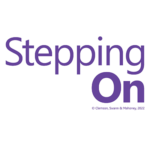
Find a Workshop
Take charge of your health by taking a WIHA workshop. We offer in-person and virtual (online or by phone) programs that give you the tools to age well. Getting started is easy – simply click the link below.
Enjoyed the newsletter? Subscribe today!

